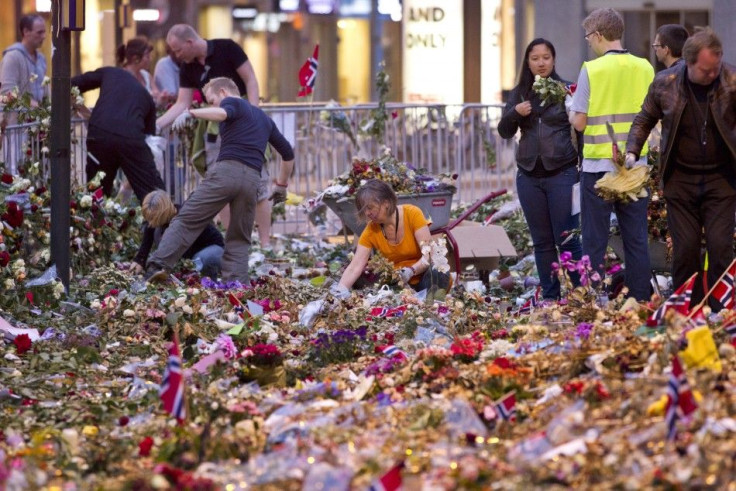Norway Mass Killer Back in Court

Norwegian mass killer Anders Behring Breivik made his second court appearance on Friday as relatives of the 69 people he gunned down last month arrived on the island where the massacre took place.
Breivik has admitted killing 77 people on July 22, including eight in a bombing in Oslo that destroyed the Norwegian government's headquarters and damaged surrounding buildings.
Friday's court hearing in Oslo, about the conditions of Breivik's detention, took take place behind closed doors at the request of police investigators, who say they want to avoid Breivik communicating with any accomplices. Police have so far said they believe Breivik acted alone.
The killer asked to wear white tie and tails at the hearing to show he was taking court proceedings seriously, according to court documents, but his request was denied on the grounds that this would be unnecessarily disturbing and offensive.
Police had asked for an extension of terms allowing them to hold Breivik in isolation. A four-week limit on solitary confinement is due to expire on Monday. Police say his isolation is helping them find out what happened.
The court's decision was due later on Friday. Under Norwegian rules, Breivik will likely remain in prison until he goes to trial a year from now, but the conditions under which he is held may at some point be relaxed.
Some 40 km (25 miles) away, about 500 relatives of victims gathered on the island of Utoeya to mourn and to hear from police and representatives of the Red Cross exactly where and how they died.
Arriving in the rain on a purpose-built pontoon vessel, family and close friends slowly dispersed across the island.
On Saturday, about 1,000 people are expected to visit the island when survivors and their relatives go back ahead of a national day of remembrance across the country on Sunday.
Going to the island helps them make sense of what happened, it helps to make it real, because up until then it can feel very unreal, psychologist Atle Dyregrov, who has organized much of the professional help for victims and relatives, told Reuters.
Seeing the facts is often less scary than the fantasies they have. The fantasy can eat you inside, it helps to see what it looks like.
Police released the full transcript on Thursday of two phone calls Breivik made to police while he was shooting, mainly teenagers, on Utoeya.
In the first, he identifies himself as a commander from the Norwegian anti-communist resistance movement and expressed his wish to surrender, before the conversation is interrupted.
In the second, Breivik says he wishes to surrender now that he has completed his operation.
Police tried to call Breivik back but he did not answer the phone. At the same time concerned relatives and people on Utoeya were making frantic calls to police to say they were being shot at. Police told them to stay calm and play dead.
Since the attacks, Norwegian police have been criticized for the way they responded to the shooting.
© Copyright Thomson Reuters 2024. All rights reserved.











